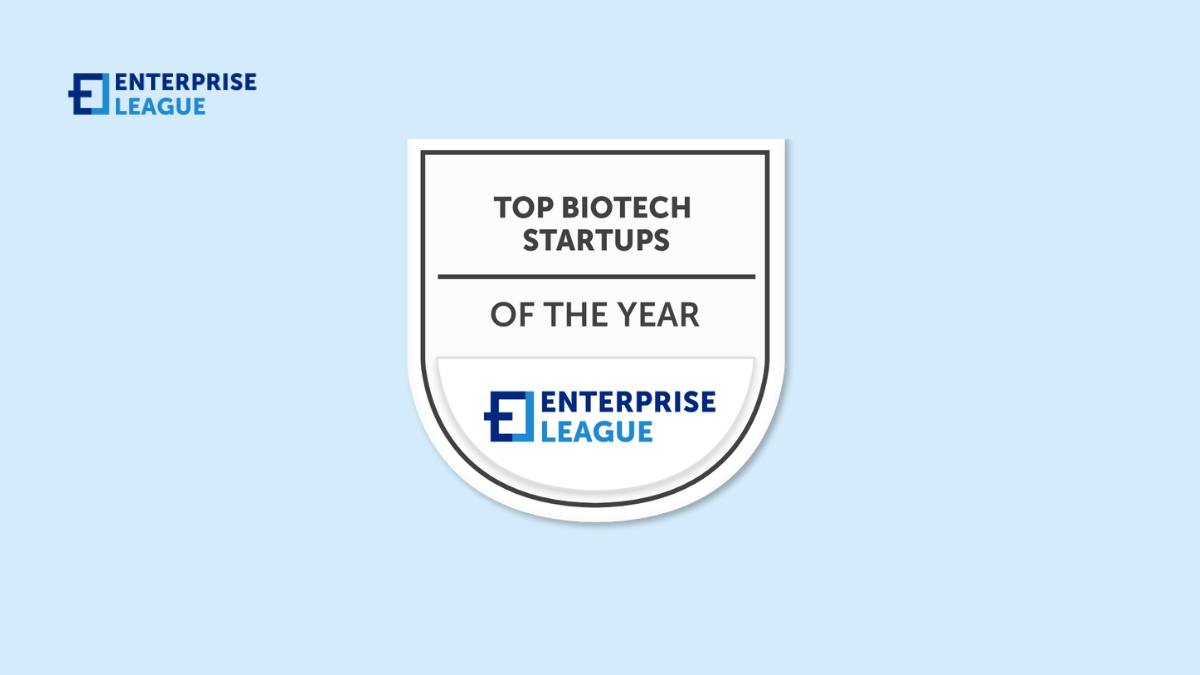The biotech industry is one of the most ambitious, innovative and fast-growing fields. Biotech startups have a mission to save lives and improve our everyday life. Thankfully, there are so many cutting-edge biotech startups doing amazing things for the world. As part of this article we will highlight some of the most promising biotech startups along with their missions.
What are biotech startups?
Biotechnology uses cellular and biomolecular processes to create technologies and products that will improve our lives and health. As one of the most ambitious industries, biotech is very attractive to aspiring entrepreneurs who want to make a huge impact on the world.
However, biotech startups also face high risks which are also expensive. Nevertheless, new startups quite often receive multimillion-dollar investments and media attention, which allows them to move forward and discover new technologies that can bring huge changes to the world.
Top 30 biotech startups worldwide
We were mind-blown by the revolutionary innovations these biotech startups have come up with so we have created the following list of the industry’s avant-garde.
Cellarity
Cellarity is a biotech startup that is a trailblazer in drug discovery, with a method of creating medicines that target cell behavior instead of just individual proteins. They work towards understanding how the disease impacts cell behavior instead of the traditional target-centric approach to drug discovery.
Cellarity works via a target agnostic approach that can help illuminate the most complex diseases. Their unique platform combines unique expertise in high-resolution data, network biology, and machine learning and generates unprecedented biological insights.
That results in a new understanding of the cell’s trajectory which means it opens up a world of opportunities for the discovery of novel therapeutics mainly for complex diseases.
Kriya Therapeutics
Kriya Therapeutics develops gene therapy treatments that target diabetes, obesity, and other widespread diseases. They are revolutionizing how gene therapies are designed, developed, and manufactured, by working towards delivering significant reductions in the cost per dose and improving speed to market.
What makes them one of the best biotech startups is the fact that they are prepared to lead this revolution in medicine. With their strong belief that rationally engineered and manufactured gene therapies have the ability to improve the treatment of a broad universe of diseases, are working towards achieving their goal.
Not only does gene therapy have a transformative impact on medicine over time, but it will also help companies that are able to integrate platform capabilities to deliver better treatments, lower cost, and the ability for broader applications of the technology.
Bionaut Labs
By using a precision-targeted medicine method to transform the way brain disorders are treated, Bionaut Labs took their place on the list of 19 revolutionary biotech startups. By creating a new medical modality of remote-controlled micro-robots called Bionauts, this biotech startup revolutionizes the treatment of CNS disorders.
Bionaut™ platform, with its anatomical targeting capabilities, makes new therapeutics technologies such as CRISPR-Cas9, gene therapy, and oncolytic viruses viable in challenging clinical settings.
Precision Fermentation
Founded in 2019, Precision Fermentation aims to bring state-of-the-art analytics to age-old fermentation production methods like beer brewing and winemaking. Their systems allow producers to closely track each batch, adjust variables, and replicate results.
By dialing in fermentation, Precision Fermentation’s products lead to purer flavors and uniform quality. Their automation solutions also reduce discarded failed batches. For artisan manufacturers struggling with consistency issues, Precision Fermentation offers optimization.
Spiderwort
Spiderwort’s proprietary technology uses cellulose-based biomaterials to engineer living scaffolds for a variety of groundbreaking regenerative medicine applications.
They are using their unique technology to help clinicians and researchers to control stiffness, shape, textures, long range architectures, to stimulate and encourage tissue regeneration.
EQRx
EQRx works on revolutionizing the medical industry by making drugs more affordable and drug pricing more transparent. Launched in January 2020, their mission attracts and empowers top experts and changemakers in the industry.
They formed a mission advisory board consisting of world leaders from research science, pharmaceutical R&D, patient advocacy, and health economics and raised $800M in funding. This demonstrates that the world is ready for this new approach to affordable medicine.
Their mission is to overcome one of the biggest healthcare challenges of our time, not only by making drugs more affordable but also by earning back the trust between the patients and the pharma industry.
Orna Therapeutics
Orna Therapeutics is another revolutionary biotech startup you should know in 2022. The company is working on overcoming the issues related to linear messenger RNA (mRNA) therapeutic development by using advanced technology to develop oRNA therapies.
Current mRNA technologies are prevented from reaching their full potential because of the numerous and ongoing challenges to production, delivery, and performance. But that’s no longer the case.
Orna Therapeutics now possesses a technology – harnessing sophisticated molecular innovations to advance a system for production, delivery, and performance which fortunately is superior to conventional long RNA approaches.
Endogena Therapeutics
Endogena Therapeutics is a preclinical-stage biotech startup that triggers stem cells in the patient’s body to regenerate and repair damaged tissue with their AI-driven platform. They discover and develop first-in-class endogenous regenerative medicines to repair and regenerate tissues and organs.
Their unique approach for endogenous regenerative medicine will result in a novel treatment paradigm for common degenerative diseases that are becoming more prevalent due to demographic changes. That approach is based on the concept of selective regulation of these endogenous cells for controlled tissue repair by small molecules.
Omne Possibile
New-to-nature nucleic acids (XNA) that are developed by Omne Possibile, are modified versions of the natural building blocks of DNA and RNA molecules. XNA can be customized for different industrial applications in the areas of healthcare, it, and smart materials.
This biotech startup brings together the key disciplines of XNA development: genetics, chemical synthesis, directed evolution of enzymes and genomes, automated design of molecules, and bioproduction pathways.
It is forecast this global synthetic biology company to have a $4 trillion annual economic impact over the next 10 to 20 years, greater than that of the internet. Uniting together the knowledge of the most forward-thinking scientists and industrialists in the field, including two Nobel laureates, Omne Possibile is set to bring genetic polymers to market.
Scailyte
Scailyte speeds up the discovery of biomarkers from single-cell sequencing data and clinical data. With their AI solution tool, they can analyze complex datasets in just a few hours and can deliver insights into biomarkers and molecular cell-identity signatures.
Even the most common diseases can be difficult to diagnose, but, fortunately, Scailyte pinpoints the cells that identify certain conditions by tapping into advances in two fields of research that are just starting to overlap.
Therefore, their mission to advance precision medicine with single-cell technologies, artificial intelligence, and omics analytics is making them one of the world’s most promising biotech startups that have the ability to make the world a better place.
Biosplice
Biosplice is quickly becoming one of the richest biotech startups thanks to their focus on stem cells. Their mission is unbelievably inspiring as they seek to learn how to manipulate stem cells in order to prevent bone and joint diseases, skin diseases and even hair loss! Wow, simply an incredible mission.
Essentially, this biotech startup is trying to find a way to force cells of aging people to regenerate as quickly as the growing embryos do. The studies that have been done to date have promising results showing that the drugs they have developed really help stimulate hair growth, reduce pain and improve joint mobility. However, since this startup and their developments are still in very early stages, we cannot expect to see their drugs make it to market anytime soon.
Ginkgo Bioworks
This trailblazing biotech startup firmly believes that from bacteria we can produce anything. Their research focuses on modifying microorganisms and it works with several partner companies to develop microbes for various different uses.
Ginkgo Bioworks even partnered with Bayer to create microbes for agricultural needs. One very unique and fascinating project of this biotech is to recreate the aroma of long-extinct plants. For this they collaborate with Harvard University where they get samples of tissues of some extinct plants.
This endeavor proved successful as the startup presented some of their recreated fragrances at a recent conference in Boston. They achieved this by supplementing the missing fragments with DNA of living related species, which enabled the genes for production of essential oils to be reintroduced into the yeast genome.
Beam Therapeutics
Based in Cambridge, MA, they focus on enabling the editing of the human genome. It aims to commercialise the CRISPR system of DNA sequences.
CRISPR technology works in the following principle:
- DNA is cut with molecular scissors
- Specialists restore the created gap with a system called non-homologous end joining
- Simultaneously genetic information is changed at the spot of incision
- Mutation resultantly occurs in a pre-selected DNA region
Moreover, Beam Therapeutics even created a base editor through which you can change individual “letters” of the genetic code without cutting. This method compared to the “scissors” method of CRISPR acts as a molecular pencil. The potential for this solution is huge and it is expected to make a boom in the biotech industry in the near future.
Auris Health
Auris Health is a biotech startup which focuses on manufacturing surgical robots. These surgical robots are being developed with the goal to enable minimally invasive treatments with high precision. Some of their main use cases are treatment of cancer cells in order to halt the progression of the disease. Thus, by using their technology, surgeons will be able to control surgeries through a video display whilst the cancer surgery is conducted mostly by robots.
They have partnered with Johnson & Johnson to push the boundaries of medical robotics even further. Having the resources of one of the largest pharmaceuticals at their disposal seriously puts this startup in a favourable advantageous position.
Cerevel
Cerevel is the biotech startup that is highly focused on finding and providing innovative treatments to life-threatening neuroscience diseases that currently affect millions of people worldwide.
This groundbreaking startup combines their thorough understanding of biology and neurocircuitry of the brain with advanced chemistry and central nervous system receptor pharmacology to discover and create new treatments.
Their ambitious goal is to help millions of people that suffer from Parkinson’s disease, epilepsy and schizophrenia through their novel therapies. And with their highly experienced team of leaders along with the strong support from Pfizer and Bain Capital, we believe this biotech startup is just getting started. The milestones they have the possibility to achieve are many and admirable at that.
Century Therapeutics
This biotech startup is frivolously aiming to develop novel allogeneic living drugs that will overcome the limitations of first-generation cell therapies. Their science is quite impressive as they are seeking to create genetically engineered immune effector cell therapies. These therapies are derived from induced pluripotent stem cells coming from healthy adults, and are specifically engineered to target hematologic and solid cancers as well as overcome barriers confronting autologous cell therapies.
Century Therapeutics are extremely focused in their mission to develop effective stem cell therapies which may help humanity fight cancers more effectively.
Passage Bio
Ambitiously focused on innovating within the field of genetic medicines, they seek to develop transformative therapies for the treatment of rate monogenic central nervous system disorders.
Passage Bio is a biotech startup with a clear mission to develop a portfolio of five life-transforming AAV-delivered therapeutics. Their focus is set on unique aspects and therapy goals for a given indication and screens a variety of AAVs in non-human primates to choose the optimal capsid and route of delivery to best meet the clinical needs of the patients.
Maze
Maze is the biotech startup that focuses on decoding the mysteries of genetic modifiers in a range of severe diseases. They use the advances in human genetics and functional genomics to systematically identify genetic modifiers and turn these insights into medicines. To achieve their mission, they have teamed up with some of the brightest and the best scientific pioneers and industry leaders.
As genetic navigators, Maze are paving the way to decode the complex maze of human genetics in an effort to fight diseases. Their ultimate goal is to develop medicines that will transform the lives of people with serious illnesses.
Ribon
This biotech startup is pursuing the creation of novel small molecules that target cancer through its dependency on stress support pathways. They have even created their own platform BEACON to facilitate this. They use their platform to find and explore the vulnerabilities of cancer cells to cellular stress.
Being a clinical stage biotech startup, Ribon is working in the emerging field of stress support pathway biology, focusing on a set of enzymes such as PARP7 that utilize nicotinamide adenine dinucleotides (NAD). NAD regulates functions like DNA replication and gene transcription in moments of cellular stress. Ribon firmly states that this link is an exceptional area for developing cancer drugs, due to the fact that cancer cells have high levels of cellular stress. Thus modulating the human immune system can contribute to the development of antitumor activity.
10x Genomics
Creating an impressive platform with the goal to help researchers better identify subtle variations in DNA is what this biotech startup is doing.
10x Genomics has essentially created an advanced DNA sequencing technology which identifies variations in biological samples and shreds them into miniature fragments before sequencing. They later use computers to assemble them into a genome. The goal of this company is to create the world’s most advanced gene sequencing technology to be used in all kinds of scientific research. Their transformative technological advancements are enabling new discoveries in diseases as well as uncovering new unrecognizable cell types.
Dyno Therapeutics
Founded in 2018, Dyno aims to overcome limitations in gene therapy delivery using computational methods. Their CapsidMap AI platform designs and optimizes next-gen adeno-associated virus (AAV) vectors tailored to target tissues.
By analyzing data on existing capsids, the AI models capsid sequences with enhanced delivery capabilities. This allows Dyno to rapidly develop novel capsids unmatched by manual lab experimentation alone.
Seed Health
Founded in 2018, Seed Health partners with scientists worldwide to translate promising microbiome research into products that benefit health and the environment.
Their in-house experts shepherd promising strains and technologies through development, testing, and commercialization. Pipeline projects span digestive health, women’s health, dermatology, mental health, infection prevention, and sustainable agriculture.
Freenome
Founded in 2014, Freenome leverages AI and machine learning to detect disease signals in blood-based biomarkers. Their technology screens for patterns across the genome, microbiome, and proteome to identify cancers at their earliest stages.
Freenome’s first product under development aims to detect colorectal cancer from just a standard blood sample. Their AI algorithms are trained on real-world patient data to identify trace signals indicative of cancer onset.
Anocca
Founded in 2018, Anocca aims to commercialize academic research on novel personalized cancer vaccines. Their approach analyzes the unique neoantigen profile of each patient’s tumor to develop a customized vaccine.
This precisely tailored vaccine activates the patient’s immune system against their specific cancer. Early studies show greatly enhanced immune response and clinical outcomes versus traditional immunotherapies.
Scipher Medicine
Founded in 2017, Scipher focuses on developing diagnostic tests that predict patient responses to specific treatments. Their PrismRA test matches rheumatoid arthritis patients to optimal medications.
PrismRA analyzes a patient’s molecular signature to identify whether they will respond better to anti-TNF or anti-IL6 drugs. This enables more informed choices and improves clinical outcomes.
Benchling
Founded in 2012, Benchling provides cloud software to help biotech and pharmaceutical companies centralize their research data and improve collaboration.
Benchling offers secure storage for biological data like DNA sequences, cell lines, and experimental protocols. Built-in analysis tools help extract insights from complex datasets. With over 200,000 scientists using the platform, Benchling is fast becoming the default operating system for R&D.
Deepcell
Founded in 2017, Deepcell has developed image analysis and robotic automation technology to improve single-cell analysis workflows. Their platform automates time-consuming manual lab tasks.
Deepcell’s CellRaft technology uses computer vision to identify and track specific live cells under a microscope based on phenotypic characteristics. Selected cells can then be isolated rapidly.
Mirvie
Founded in 2018, Mirvie aims to improve maternal and fetal health outcomes through early risk detection. Their tests analyze cell-free RNA biomarkers in maternal blood to assess risks of complications.
Mirvie’s first product, Livarna, screens for placental complications that can lead to preterm birth. By identifying at-risk pregnancies early, interventions can be taken to improve outcomes.
Asimov
Founded in 2018, Asimov bioengineers microbial cells like yeast to perform useful functions. They design and insert gene circuits to reprogram cellular behavior predictably.
Potential applications include producing chemicals, sensing toxins in the environment, targeting disease pathways, and more. Asimov’s platform automates circuit design by leveraging data and AI.
Synchron
Founded in 2016, Synchron leverages neural stimulation and sensing technology to potentially treat a range of neurological conditions. Their devices interface with the nervous system within blood vessels.
Their implant acts as both a sensor to interpret brain signals and a stimulator to modulate them. The minimally invasive stent-electrode platform enables a scalable brain-computer interface.
What all these biotech startups have in common
All these revolutionary biotech startups have shown us that armed with knowledge and dedication we can accomplish any mission. We are extremely excited to see how their progress develops as well as keeping an eye on new upcoming breakthroughs. Hopefully, these companies can inspire more innovations within the biotech industry and push the boundaries of this science.
Discover more creative startups that might interest you:
- Top real estate startups that are changing the real estate industry.
- Food startups that are developing amazing food making and delivery solutions.
- Amazing environmental startups that are on a mission to save the planet.
- 3D printing companies with outstanding innovations to improve manufacturing.
- Successful beauty startups with creative beauty products.
Related Articles
How cloud technologies are revolutionizing small hospitality businesses
So let’s rifle through the perks cloud technologies provide and give you the motivation to move forward with the next phase of digital transformation.
The deep psychological effects of sales and advertising
In this article we will explore the deep psychological effects of sales and advertising that average person is exposed to on daily basis for commercial gain.
28 most exciting media startups to follow closely (2024)
Check out these 28 most promising media startups that are making the media industry more engaging, interactive, and enticing for the worldwide audience.
How cloud technologies are revolutionizing small hospitality businesses
So let’s rifle through the perks cloud technologies provide and give you the motivation to move forward with the next phase of digital transformation.
The deep psychological effects of sales and advertising
In this article we will explore the deep psychological effects of sales and advertising that average person is exposed to on daily basis for commercial gain.








